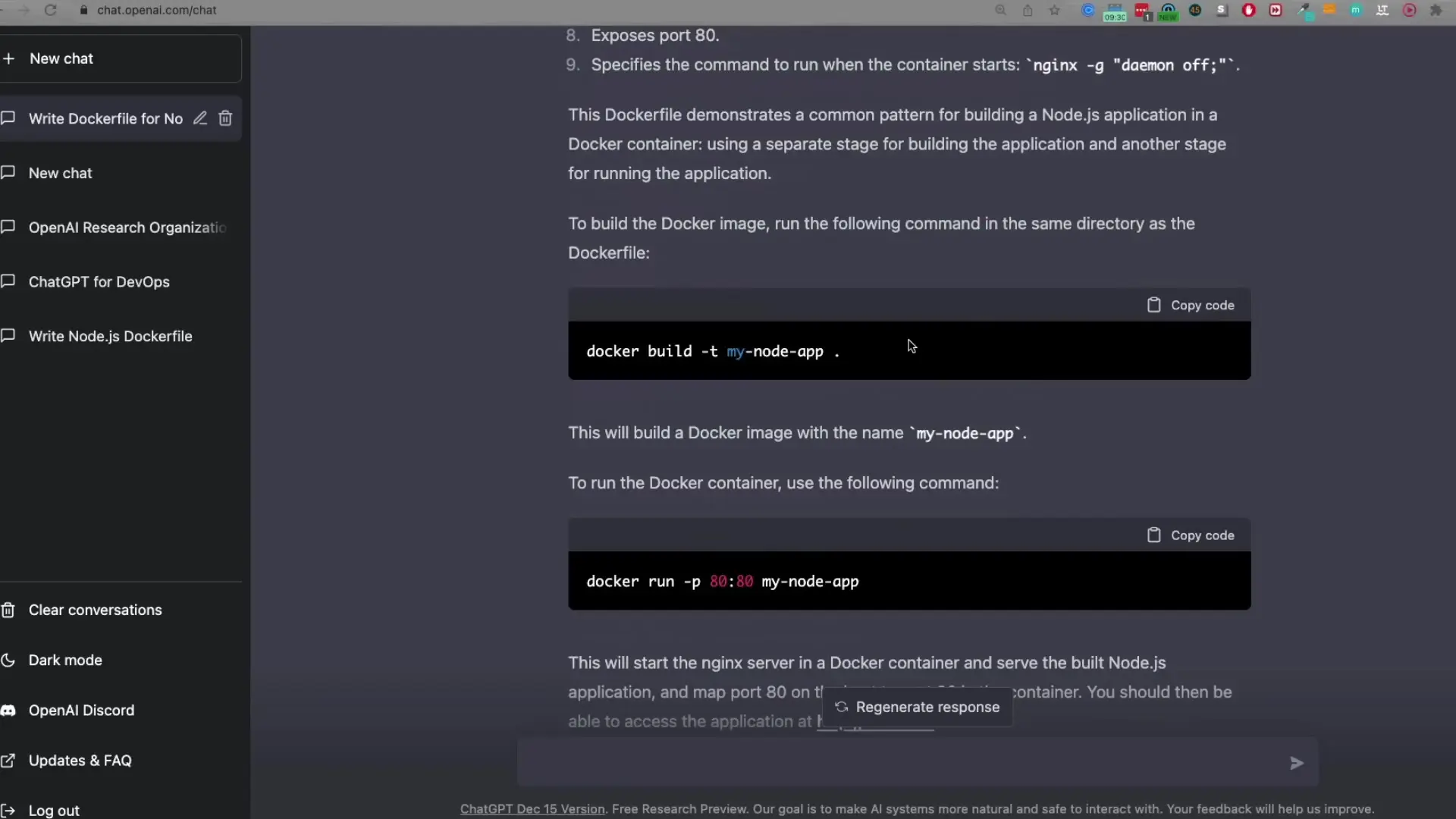
ChatGPT has rapidly emerged as a powerful tool for professionals across various fields, including DevOps engineers who are looking to enhance their productivity and streamline their workflow. This AI assistant, developed by OpenAI, offers remarkable capabilities that can transform how DevOps engineers approach their daily tasks, from generating infrastructure code to explaining complex concepts.
What is ChatGPT and Who Created It?
ChatGPT is an advanced language model created by OpenAI, a research organization founded by Elon Musk, Sam Altman, and others who were concerned about the potential misuse of artificial intelligence. Their mission was to develop AI in a way that benefits the general public and democratizes access to this technology.
The model itself is based on the Generative Pre-trained Transformer (GPT) architecture, with ChatGPT specifically built on GPT-3, which was trained on an extensive dataset that enables it to generate human-like text, answer questions, summarize content, and even create code snippets across various programming languages and frameworks.
OpenAI has developed several impressive AI projects beyond ChatGPT, including DALL-E (which generates images from text descriptions) and various iterations of the GPT model, each more powerful than the last.
Practical DevOps Use Cases for ChatGPT
Let's explore how DevOps engineers can leverage ChatGPT for various tasks, with a focus on real-world applications that can significantly boost productivity.
1. Generating Dockerfiles for Application Containerization
One of the most common tasks for DevOps engineers is containerizing applications. ChatGPT can generate well-structured Dockerfiles for various application types with minimal input. For example, when asked to create a Dockerfile for a Node.js application, ChatGPT not only provides the code but also explains each instruction in detail.
FROM node:14
# Set working directory
WORKDIR /app
# Copy package.json and package-lock.json
COPY package*.json ./
# Install dependencies
RUN npm install
# Copy application code
COPY . .
# Expose port
EXPOSE 3000
# Start application
CMD ["npm", "start"]What makes ChatGPT particularly valuable is that it doesn't just provide the code—it explains what each instruction does, offers best practices (like specifying exact versions), and even provides follow-up commands for building and running the container.

2. Optimizing Docker Configurations
Beyond basic Dockerfile generation, ChatGPT can help optimize your containerization approach. For instance, when asked to modify a Dockerfile to use Yarn instead of npm, or to only copy relevant application files (instead of the entire directory), it quickly provides optimized solutions:
FROM node:14
# Set working directory
WORKDIR /app
# Copy package.json and yarn.lock
COPY package.json yarn.lock ./
# Install dependencies using Yarn
RUN yarn install --frozen-lockfile
# Copy only necessary files
COPY src/ ./src/
COPY public/ ./public/
COPY .env* ./
# Expose port
EXPOSE 3000
# Start application
CMD ["yarn", "start"]This capability to refine and optimize configurations based on specific requirements makes ChatGPT an invaluable tool for DevOps engineers looking to implement best practices in their infrastructure code.
3. Explaining Complex DevOps Concepts
ChatGPT excels at explaining technical concepts in clear, accessible language. For example, when asked to explain what the WORKDIR directive does in a Dockerfile, it provides a comprehensive explanation with examples and comparisons to familiar concepts like the CD command in shell scripts.
This makes it an excellent learning resource for junior DevOps engineers or those looking to expand their knowledge in specific areas of DevOps.
Benefits of Using ChatGPT for DevOps Tasks
- Contextual awareness: ChatGPT maintains context throughout a conversation, allowing for follow-up questions and iterative refinement of solutions
- Detailed explanations: Goes beyond just providing code by explaining what each part does and why it's important
- Best practices implementation: Incorporates industry best practices in generated code and configurations
- Time savings: Rapidly generates infrastructure code that would take significant time to research and write manually
- Learning tool: Helps DevOps engineers understand new concepts or technologies through clear explanations
Limitations to Be Aware Of
While ChatGPT is incredibly powerful, DevOps engineers should be aware of its limitations:
- Knowledge cutoff: The current version's training data only goes up to 2021, meaning it lacks information about the latest tools or versions released after that date
- No direct environment access: ChatGPT cannot directly interact with your systems or run code to test it
- Occasional inaccuracies: While generally reliable, it may sometimes provide solutions that aren't optimal for specific edge cases
- Security considerations: Always review generated infrastructure code for security best practices before implementing in production

Essential DevOps Topics Where ChatGPT Can Help
ChatGPT can assist with numerous DevOps training topics and daily activities, including:
- Infrastructure as Code (IaC) template generation for tools like Terraform, CloudFormation, or Ansible
- CI/CD pipeline configuration for platforms such as Jenkins, GitHub Actions, or GitLab CI
- Container orchestration with Kubernetes, including manifest creation and troubleshooting
- Cloud service configuration across AWS, Azure, and GCP
- Monitoring and logging setup with tools like Prometheus, Grafana, and ELK stack
- Security implementation guidance for DevSecOps practices
- Database management and migration scripts
- Automation script development in Python, Bash, or PowerShell
How ChatGPT Compares to Traditional DevOps Learning Resources
ChatGPT offers several advantages over traditional learning resources for DevOps engineers:
- Interactive learning: Unlike static documentation, ChatGPT allows for back-and-forth conversation to refine understanding
- Personalized explanations: Tailors explanations to your specific questions and knowledge level
- Integrated knowledge: Combines information from multiple domains that might otherwise require consulting several different resources
- Practical examples: Provides concrete, applicable examples rather than just theoretical concepts
- Time efficiency: Delivers concise answers to specific questions without requiring you to sift through lengthy documentation

Will ChatGPT Replace DevOps Engineers?
Despite its impressive capabilities, ChatGPT is unlikely to replace DevOps engineers entirely. Instead, it's best viewed as a powerful tool that can enhance productivity and effectiveness. Here's why:
- Domain expertise: ChatGPT lacks the deep contextual understanding of specific business environments that experienced DevOps engineers possess
- Problem-solving: Complex troubleshooting often requires intuition and experience that AI currently cannot replicate
- Implementation and verification: ChatGPT can generate code but cannot implement or test it in real-world environments
- Strategic decision-making: DevOps engineers make critical architectural decisions based on business requirements, budget constraints, and team capabilities
Rather than replacing DevOps engineers, ChatGPT is transforming the role by handling routine tasks and allowing professionals to focus on more strategic, high-value activities that require human judgment and creativity.
Best Practices for Using ChatGPT in DevOps Workflows
- Be specific with your prompts: The more detailed your request, the more accurate and useful the response will be
- Iterate and refine: Use follow-up questions to improve initial responses
- Always review generated code: Never implement ChatGPT-generated configurations without thorough review
- Use for learning: Ask for explanations of concepts you don't fully understand
- Combine with other tools: Use ChatGPT alongside specialized DevOps tools for optimal results
- Keep security in mind: Be careful not to share sensitive information in your prompts
Conclusion: Embracing AI as a DevOps Multiplier
ChatGPT represents a significant advancement in how DevOps engineers can approach their daily tasks. By generating infrastructure code, explaining complex concepts, and helping optimize configurations, it serves as a powerful productivity multiplier that can help engineers deliver more value in less time.
The most successful DevOps engineers will be those who learn to effectively integrate tools like ChatGPT into their workflows, using AI to handle routine tasks while focusing their human expertise on complex problem-solving, innovation, and strategic decision-making. Rather than fearing replacement, DevOps professionals should embrace these tools as opportunities to elevate their roles and capabilities.
As the technology continues to evolve, the potential applications for AI in DevOps will only expand, making now the perfect time to start exploring how ChatGPT can enhance your DevOps practices and boost your productivity tenfold.
Let's Watch!
10x Your DevOps Productivity: ChatGPT for DevOps Engineers
Ready to enhance your neural network?
Access our quantum knowledge cores and upgrade your programming abilities.
Initialize Training Sequence